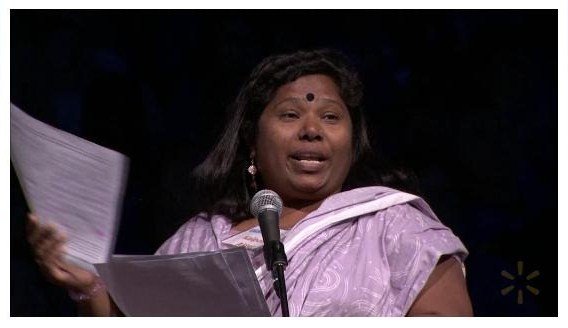“We want jobs and we want them with dignity” : The Rana Plaza Disaster in Bangladesh-Taking Stock Half a Year On
“Namaskaar”, Kalpona Akter greeted a small audience at the Ford Foundation auditorium on November 20th means ‘hello’ in Bengali. Please repeat.”
 |
| Kalpona Akter spoke at the Ford Foundation on Nov. 20, 2013 about sweatshop labor. |
In a brief but powerful address, Akter spoke on the progress she has made as the Executive Director of the Bangladesh Center for Worker Solidarity. She explained how, on the morning of the Rana Plaza collapse, one worker felt that the foundations were too unstable and asked her manager for permission to leave. Responding that the building payday loans statesboro ga was made to last one hundred years, the manager hastened to lock the gate that the garment workers had to be trapped behind. “She grabbed for his collar as he locked the gate,” Akter related. “The building didn’t even last 100 minutes.”
Instances like these are wholly preventable by the corporations that buy the clothing, like Wal-Mart, Gap, H & M and Target. Although many companies, Wal-Mart in particular, are well known for egregious treatment of their workers, serious coverage of factory conditions in third-world countries didn’t escalate until earlier this year, after the Rana Plaza collapse. The event’s panel highlighted two primary factors for improving working conditions in Bangladesh.
The first, according to Judy Gearhart of the International Labour Rights Forum, would be transparency focusing on enabling workers to form trade unions and the opportunity for factories to uphold corrective action against cash advance in Bakersfield CA anyone who threatens and/or harasses workers. In order for transparency to be implemented, however, each tier of the great maelstrom that is the garment industry, from the brand to the contractor to the subcontractor to the factory owner, will have to be re-examined.
The second factor will be worker advocacy. Had workers been given the opportunity to form a union, the likelihood that Rana Plaza and Tazreen would have happened is significantly less likely. “Empowering workers through financial literacy is important”, said Lauren Compere of Boston Common Asset Management. Making sure they know where their products are going, how much the company they are producing for makes and what percentage of that figure should be reserved for workers wages would definitely be a good thing.
 |
| People protest the refusal of Gap and Walmart to help sweatshop workers in their overseas factories. |
As fashion column writer, I believe this issue is deeply related to fashion. Fashion allegedly is to help you look beautiful or chic, but if you think about it, helping others in situations more dire than our own is an act of true beauty. As the New Year stealthily approaches, this would be a great way to turn over a new leaf.
At the address, a quote by William Blake was uttered that epitomized perfectly the reasons behind why we are having this discussion: “Every night and every morn, some to misery are born; every morn and every night, some are born to sweet delight.”
True, we may not have been born into a place where we are locked in for hours until we complete our work, or where we can only drink toilet water if we are thirsty, but we can stand up for those who are living in these conditions and help them. As Kalpona Akter stated, “I was jailed, confined, physically tortured, psychologically tortured, yet I still stand. If I can, you can too.”
The original version of this article was published in Rochester indymedia.


Comments